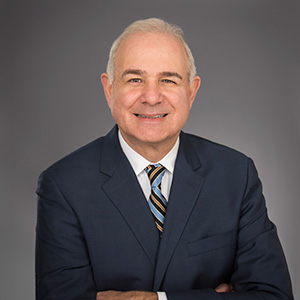Basics of Will & Trust Preparation
McCarthy Fingar’s Trusts and Estates lawyers have many years of experience in developing and implementing estate planning recommendations to accomplish a client’s objectives. We recognize that, even before we evaluate tax avoidance solutions, it is essential that we make sure that the client’s assets go to the client’s intended beneficiaries in the manner in which the client intends, whether through outright shares or in trust.
Wills and Revocable Trust Agreements – Initial Meeting
Estate planning expertise for individual clients ranges from the preparation of simple wills and/or revocable trust agreements to sophisticated income, gift, estate and generation skipping transfer tax planning both for individuals and for family businesses. Usually, we begin the process with a prospective new client by conducting a thorough interview of the client to obtain information that is necessary for us to make estate planning recommendations.
Revocable Trusts (Living Trusts)
Introduction: The revocable trust, or living trust, is finding increased acceptance as an estate planning tool and is often one of our estate planning recommendations. This type of trust is a trust (which is an agreement) typically between the creator (or grantor) of the trust and the grantor and another as trustee (the grantor can also be sole trustee of the trust as well). Upon the death of the grantor, the trust becomes irrevocable and the property passes to those individuals, organizations or trusts as dictated by the grantor.
Income Tax Conseqences: During the life of the grantor, the trust is freely revocable or amendable, and because of this, any transfers to the trust by the grantor are not treated as completed gifts (which would generate a gift tax). As long as the grantor is alive, all trust income (dividends, interest, realized capital gains) are taxed to the grantor individually, no trust income tax returns need to be filed. This transition happens without the involvement of the Surrogate’s Courts and regardless of the existence of the Will of the grantor. However, some local Surrogate’s Courts require the filing of a revocable trust where the Will “pours over” estate assets to the trust.
Estate Tax Consequences: Because the grantor retains the right to revoke the trust, the assets in the trust do not avoid estate taxes on the death of the grantor. Yet, through proper planning, the estate tax avoidance techniques available to a client can be accomplished through either a Will or a Revocable Trust Agreement.
Property Management: A Revocable Trust is much touted for the fact that, through proper transfers to the trust, probate can be avoided. We believe, however, that a Revocable Trust is even a more important vehicle for dealing with a grantor’s actual or possible physical and/or mental disability. Thus, for clients whose assets may require managed care and/or who are concerned about their own ability to continue management of their own affairs, a Revocable Trust provides clients with the opportunity to choose a family member, bank or other adviser to serve as co-trustee with the client; and if the client, at some future time, is unable to manage his or her financial affairs, then the co-trustee can continue the management of the client’s assets, through the trust, without the need for supervision by any court.
The Role of the Surrogate’s Court on Revocable Trusts: It is still imperative that the individual have a Will to cover the disposition of property which is invariably not titled in the name of the trust. Under these circumstances, probate of a Will to ensure the transfer of assets still registered in a decedent’s name is necessary. Under these circumstances, as mentioned above, some local Surrogate’s Courts require that a copy of the revocable trust be filed in the Surrogate’s Court as part of the probate filing.
Durable Power of Attorney; Living Will; Health Care Proxy
An important component of the estate planning process requires a client to determine, at a time when he or she is physically and mentally strong, who that client would chose to be responsible for making both financial and health care decisions for him or her, when at a later time, the client may become mentally incapacitated. Indeed, under New York law, if a person has legally designated agents to make property and health care decisions, then the agents can usually make such decisions for the client, (even when the client has become mentally unable to make such decisions for himself or herself); making the likelihood of court intervention for the appointment of a guardian to make decisions on property or personal needs matters unnecessary. Thus, whenever a client retains our firm for any type of will or trust planning, we usually counsel them to consider making a Statutory Short Form Durable Power of Attorney; and a combined Living Will and Health Care Proxy at that time. For further information about Health Care Proxies and the medical/ethical issues pertaining to such documents, see New York State’s Task Force on Life and the Law.
Appointment of Executors, Trustees and Guardians
Introduction: The individuals or organizations (banks or trust companies) you choose to act as executor, trustee and/or guardian must be given careful consideration. The following general comments may be helpful:
Executor: This is the person or bank you choose to collect your assets, administer your estate, pay your debts, and carry out the instructions of your Will.
Trustee: The person or bank who will hold money, invest it and distribute according to the terms of the trust.
Guardian: The individual you choose to look after the person or property of any minor child you may have.
The McCarthy Fingar Approach in Basic Estate Planning
In helping clients make decisions on their Wills and Trust Agreements and other estate planning devices, McCarthy Fingar’s lawyers first spend the time to collect information and documents from our clients. Then, often in an initial meeting, we will suggest different options to help the client make decisions that are consistent with the client’s intentions on who would receive such assets on a client’s death. We then draft documents to carry out those intentions and estate planning recommendations, including making sure that the plan is implemented, through, for example, the transfer of an asset to a recommended trust.
Contact Us
McCarthy Fingar’s Estate Planning lawyers are dedicated to our clients’ success. If you think you may require our assistance or have any questions about options, please contact Gail M. Boggio by email (gboggio@mccarthyfingar.com) or phone (914-385-1026) or Frank W. Streng by email (fstreng@mccarthyfingar.com) or phone (914-385-1022).
| Presenter | Description | Organization | Date |
|---|





